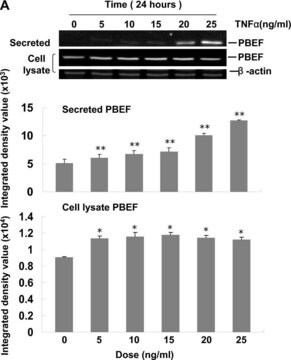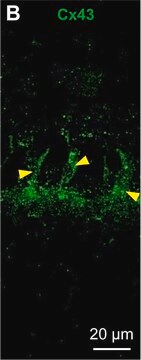A9357
Anti-Actin, Cardiac antibody, Mouse monoclonal
clone AC1-20.4.2, purified from hybridoma cell culture
Synonym(s):
Anti-ACTC, Anti-ACTC1, Anti-Actin alpha cardiac muscle 1, Anti-CMD1R, Anti-CMH11
About This Item
Recommended Products
biological source
mouse
Quality Level
conjugate
unconjugated
antibody form
purified immunoglobulin
antibody product type
primary antibodies
clone
AC1-20.4.2, monoclonal
form
buffered aqueous solution
mol wt
antigen ~42 kDa
species reactivity
rat, human, bovine, chicken, mouse
concentration
~1.0 mg/mL
technique(s)
immunocytochemistry: suitable
immunohistochemistry (formalin-fixed, paraffin-embedded sections): 10-20 μg/mL using digested rat heart tissue
indirect ELISA: suitable
western blot: suitable
isotype
IgG1
UniProt accession no.
shipped in
dry ice
storage temp.
−20°C
target post-translational modification
unmodified
Gene Information
human ... ACTC1(70)
mouse ... Actc1(11464)
rat ... Actc1(29275)
General description
Immunogen
Application
Immunohistochemistry (1 paper)
Western Blotting (1 paper)
Physical form
Disclaimer
Not finding the right product?
Try our Product Selector Tool.
Storage Class Code
10 - Combustible liquids
Flash Point(F)
Not applicable
Flash Point(C)
Not applicable
Personal Protective Equipment
Certificates of Analysis (COA)
Search for Certificates of Analysis (COA) by entering the products Lot/Batch Number. Lot and Batch Numbers can be found on a product’s label following the words ‘Lot’ or ‘Batch’.
Already Own This Product?
Find documentation for the products that you have recently purchased in the Document Library.
Our team of scientists has experience in all areas of research including Life Science, Material Science, Chemical Synthesis, Chromatography, Analytical and many others.
Contact Technical Service








